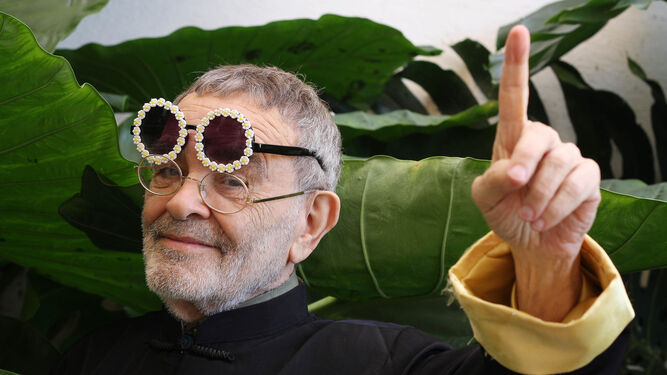Creator of panic theater: Who is Fernando Arrabal?
Witnessing the horrors of the Spanish Civil War, the terror of the police and the fearful atmosphere of the concentration camps at a young age, Arrabal's plays are filled with elements that shock and terrify the audience.

Spanish writer. He was born in Melilla, Spanish Morocco. He came from an ultra-religious Catholic family. After completing his secondary education in the city where he was born, he went to Madrid to study law. In 1954, when the fascist Spanish government arrested his father, he fled to France and settled in Paris. He started to write poems in Spanish first and then French plays in the Panic theater genre he developed. Arrabal, who wrote nonverbal plays, ballet pieces, and novels in addition to theatrical plays, was received with much greater interest in Germany, England, and the USA than in France.
Fernando Arrabal Terán (born August 11, 1932) is a Spanish playwright, screenwriter, film director, novelist, and poet. He was born in Melilla and settled in France in 1955. Regarding his nationality, Arrabal describes himself as "desterrado", or "half-expatriate, half-exiled".
A few years after Arrabal settled in France, he began to unleash one game after another. Witnessing the horrors of the Spanish Civil War, the terror of the police, and the fearful atmosphere of the concentration camps at a young age, Arrabal's plays are filled with elements that shock and terrify the audience.
The first of these is his play Piquenique en campagne (Picnic on the Front), which he completed in Spain in 1954 and presented to Paris audiences in 1959. Nightmare events combined with black humor form the basis of a game against war. A family, unaware of the life-or-death situation at the front, comes to visit their son, who is a prisoner of war, and they intend to have a picnic. The result is that they are all cut down by machine gun fire. Arrabal's characters are people who act with a Charlomon naivety at times, with sudden, reasonless displays of violence, who harm each other with the callousness and cruelty of a child.
In Le cimetiere des voitures ("Car Cemetery"), the hero, reminiscent of Jesus with his "goodness", is ambushed by his friends, who, like himself, live in an abandoned car cemetery, are crucified on a police motorcycle, and killed. A couple who witnessed the event is watching the events in silence and feeding their baby. In the play Guernica, named after Picasso's famous painting, two people trapped in the ruins of a bombed-out house in Spain, while waiting for death, talk in a sickly language.
The play Le fard des delices (Garden of Pleasures), named after Arrabal's name from another famous painting, Bosch's most important work, attracted great attention when it was staged in Paris. The play is woven with the delirium of a life-weary actress, which shows his search for the dark spots of himself. The hero's delusions, self-contempt, and sickly joy are displayed in sadomasochistic images. Most of Arrabal's plays are short, avant-garde works featuring like-minded people in similar positions.
Arrabal has attracted attention as a pioneering theater actor and essayist with his works that are a reflection of the negative consequences of World War II in Europe and developed as an absolute negative reaction to the world. In his plays, which he called "panic theatre", he aimed to reveal and exhibit the brutal and violent aspects of the human spirit, which are suppressed by the environment and moral values. These experiments contributed to the formation of the Happening theater understanding that developed later on.
WORKS:
Pique-nique en campagne, 1954, (Picnic on the Front);
Le cimetiere des voitures, 1958 (“The Car Cemetery”);
Guernica, 1961;
L'Architecteet L'Empereur-d'Assyrie, 1967; (“Architect and Assyrian emperor”);
Le Jardin des Delices, 1969, (“The Garden of Delights”).
